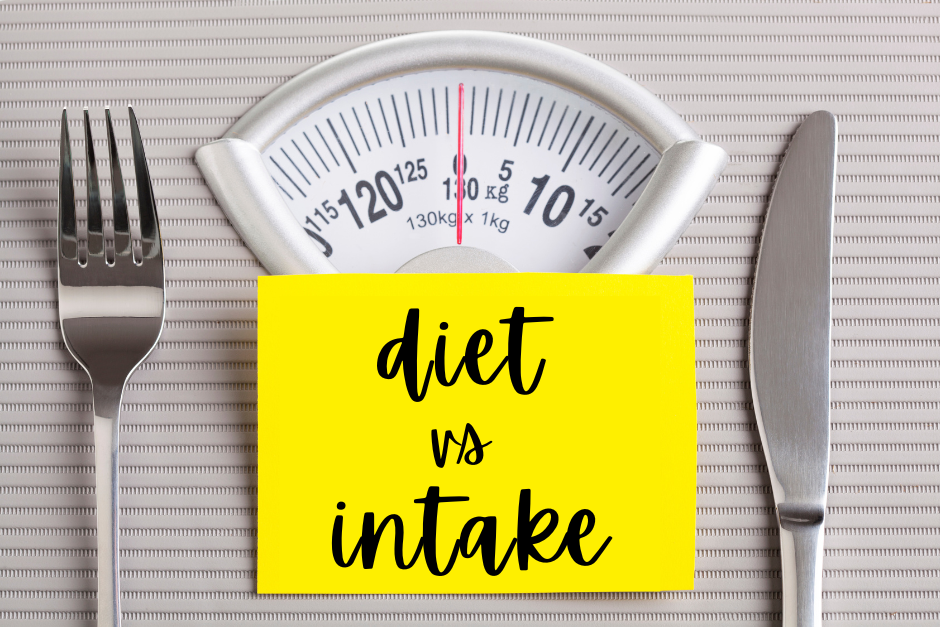The word “diet.” We often use it to describe how we consume food. However, “diet” gives off the impression of a quick fix rather than a sustainable lifestyle change. According to the Merriam-Webster dictionary, “diet” is defined as “food and drink regularly provided or consumed” and “a regimen of eating and drinking sparingly to reduce one’s weight.” This definition emphasizes the restrictive nature of many popular diets and their focus on short-term results.

So, instead of honing in on “dieting,” let’s take a more sustainable approach to healthy eating by considering our overall food intake or nutrition. “Intake” refers to the amount of food and nutrients we consume regularly. Shifting the focus from “diet” to “intake” encourages a broader perspective on nutrition and emphasizes the importance of long-term habits rather than short-term restrictions.
By considering healthy eating as “nutrition” or “intake,” we can approach our food choices as part of a sustainable lifestyle adjustment. This change in perspective acknowledges that lasting health and wellness are not achieved through temporary, restrictive measures but rather through consistent, balanced nutrition over time.
In a nutshell, the word “diet” can sound like a short-term solution. Still, when we shift the focus to “intake” or “nutrition,” we encourage a more sustainable approach to healthy eating, highlighting long-term lifestyle adjustments rather than quick fixes. We can promote lasting wellness and balance by re-framing our understanding of healthy eating.